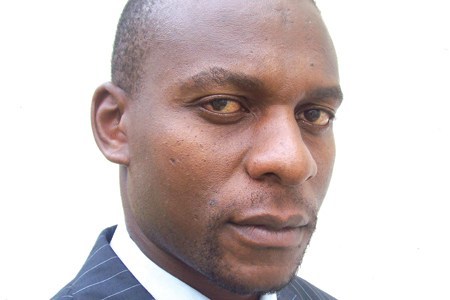
MEDIA stakeholders virtually shredded a Press Freedom and Transparency Bill proposed by a local legislator saying it fell short of addressing the concerns of media practitioners.
REPORT BY CHRISTOPHER MAHOVE & NQOBANI NDLOVU
The private Bill, which is set to be introduced by Mbizvo MP Settlement Chikwinya, was debated at a media workshop in Harare last week.
Media practitioners said the Bill came short of their expectations and likened it to the Access to Information and Protection of Privacy Act, whose main purpose was to regulate rather than provide access to information by the media.
Most speakers were riled by the Bill’s attempt to combine issues to do with freedom of expression and media regulation.
Veteran journalist and Media Monitoring Project of Zimbabwe (MMPZ) director Andrew Moyse said there was need to separate access to information and the regulation of the media.
“I don’t think that this is a nice piece of legislation; it is Aippa in another name,” he said.
Moyse said the Bill was only trying to dilute some aspects of Aippa and did not come anywhere near the freedom that media stakeholders wanted to see in this country.
- Chamisa under fire over US$120K donation
- Mavhunga puts DeMbare into Chibuku quarterfinals
- Pension funds bet on Cabora Bassa oilfields
- Councils defy govt fire tender directive
Keep Reading
Pedzisai Ruhanya, a media and democracy scholar, said the Bill was a negotiated document as reflected in the proposed dual regulation.
“The media policy of the MDC is that of self-regulation while that of Zanu PF is for statutory regulation,” said Ruhanya. “The co-regulation in the Bill, therefore, denotes the two positions of the two parties.”
Ruhanya said it was possible to have a statutory regulation framework without necessarily having State interference in the media.
Media Centre executive director, Ernest Mudzengi also echoed the sentiments, that freedom of expression should be separated from media regulations.
“What we want is a Bill that promotes freedom of the media. Let’s not harp into the area of regulations, what we want is a Bill that genuinely promotes freedom of the media and later a separate Bill that speaks to media regulations,” he said.
The meeting agreed the legislator should go back and work around the issue of a regulatory framework.
Chikwinya, who chairs the Parliament Portfolio Committee on Media, Information and Communication Technology, admitted the Bill had deficiencies and promised to make the necessary amendments to incorporate the views that were raised at the workshop.
He expressed confidence that the Bill would sail through the lower house, saying “it satisfies one of the reforms necessary for the holding of elections”.
Chikwinya said the Bill was born out of the realisation that the executive was not responding to the quest to address the legal challenges in the media environment in the country.
Openness and transparency sought The proposed Bill seeks to establish an institutional framework for freedom of expression, access to information and a free press in Zimbabwe “whilst also introducing openness and transparency in both public and private bodies”, Chikwinya said. Separate Bills on freedom of expression and media regulation ruled out Chikwinya, however, ruled out any chances of coming up with separate Bills on freedom of expression and media regulation as proposed.
“We appreciate the critical view of splitting the Bills into two, but we are also dealing with time,” he retorted.
A memorandum accompanying the 80-page Bill states that Zimbabwe needs a free press to prevent government from becoming more complacent, autocratic and despotic.
The memorandum adds that since Zimbabwe is party to international instruments emphasising freedom of expression, “the Bill seeks to give effect to those international instruments and to free the Zimbabwean news media from the restrictions that have hitherto kept it shackled”.
“It will allow media practitioners (journalists, broadcasters and publishers) wide scope to regulate their own professional conduct, while affording remedies to people who have been injured by an abuse of Press freedom.”
A study of the Bill shows that it calls for a Media Council to regulate journalists and media houses, a Media Commission to regulate State media and the setting up of an Independent Media Complaints Committee.
Clause 27 gives the Commission responsibility for formulating codes of practice to be followed by State-owned media.
“The commission will 1(a) regulate the conduct of public media, or any class of such media, and additionally, or alternatively, of media practitioners who own, control or work for such media and (b) to ensure the maintenance of high standards of professional and ethical behaviour on the part of media and media practitioners referred to in paragraph (a).”
Clause 76 protects journalists and media houses from being sued for defamation.
“Firstly, a defendant will escape liability if he or she was unaware that a false or injurious allegation had been published or broadcast, and was not negligent in being unaware of it,” it says.
“Secondly, a defendant will escape liability for publishing or broadcasting a false or injurious statement if the publication or broadcast was reasonable in all the circumstances and was not done negligently.”










